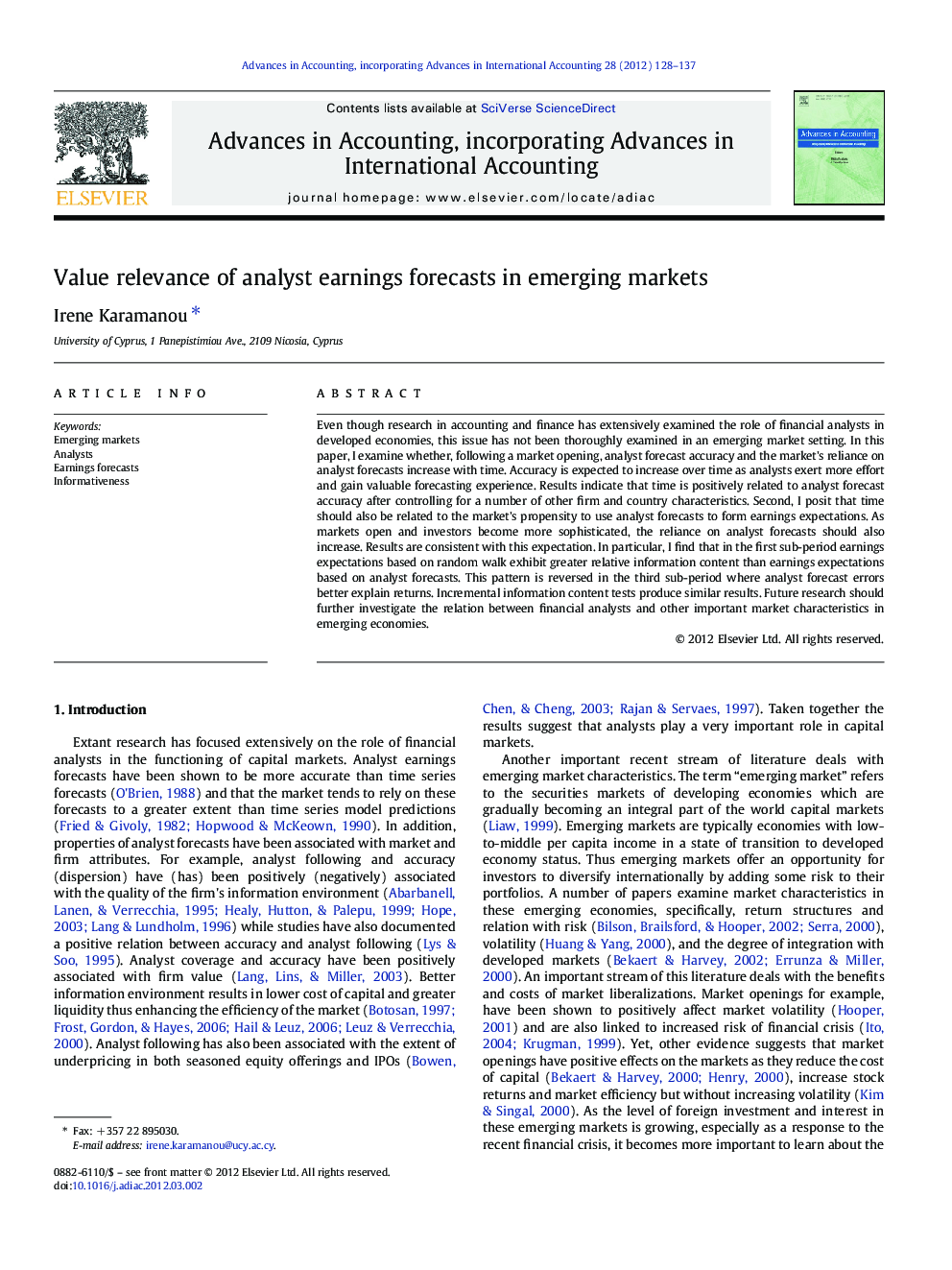| Article ID | Journal | Published Year | Pages | File Type |
|---|---|---|---|---|
| 7340751 | Advances in Accounting | 2012 | 10 Pages |
Abstract
Even though research in accounting and finance has extensively examined the role of financial analysts in developed economies, this issue has not been thoroughly examined in an emerging market setting. In this paper, I examine whether, following a market opening, analyst forecast accuracy and the market's reliance on analyst forecasts increase with time. Accuracy is expected to increase over time as analysts exert more effort and gain valuable forecasting experience. Results indicate that time is positively related to analyst forecast accuracy after controlling for a number of other firm and country characteristics. Second, I posit that time should also be related to the market's propensity to use analyst forecasts to form earnings expectations. As markets open and investors become more sophisticated, the reliance on analyst forecasts should also increase. Results are consistent with this expectation. In particular, I find that in the first sub-period earnings expectations based on random walk exhibit greater relative information content than earnings expectations based on analyst forecasts. This pattern is reversed in the third sub-period where analyst forecast errors better explain returns. Incremental information content tests produce similar results. Future research should further investigate the relation between financial analysts and other important market characteristics in emerging economies.
Related Topics
Social Sciences and Humanities
Business, Management and Accounting
Accounting
Authors
Irene Karamanou,
